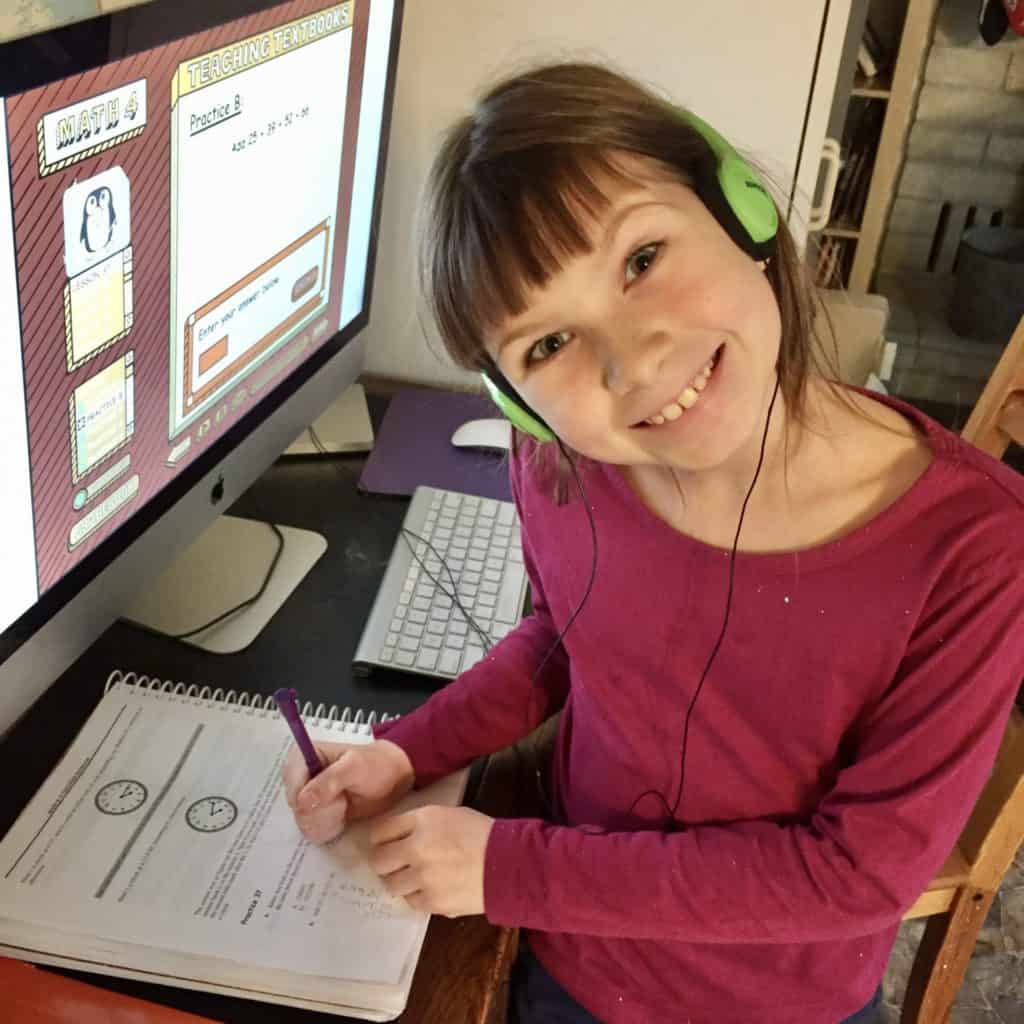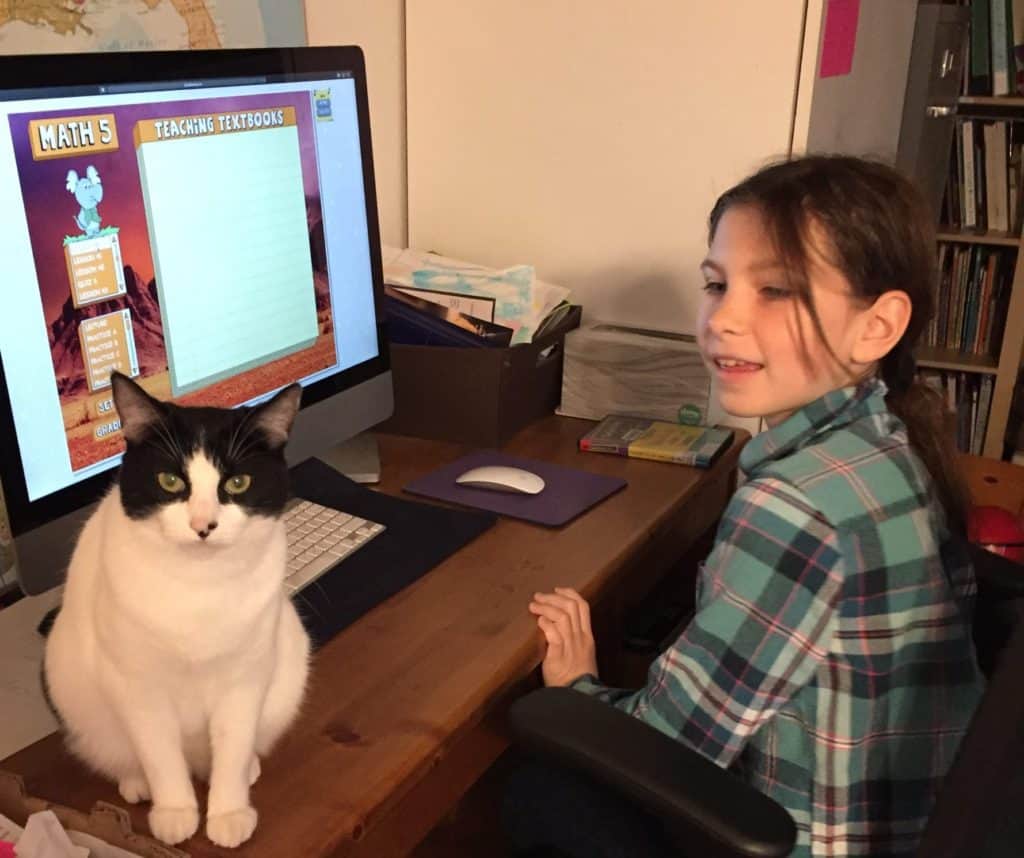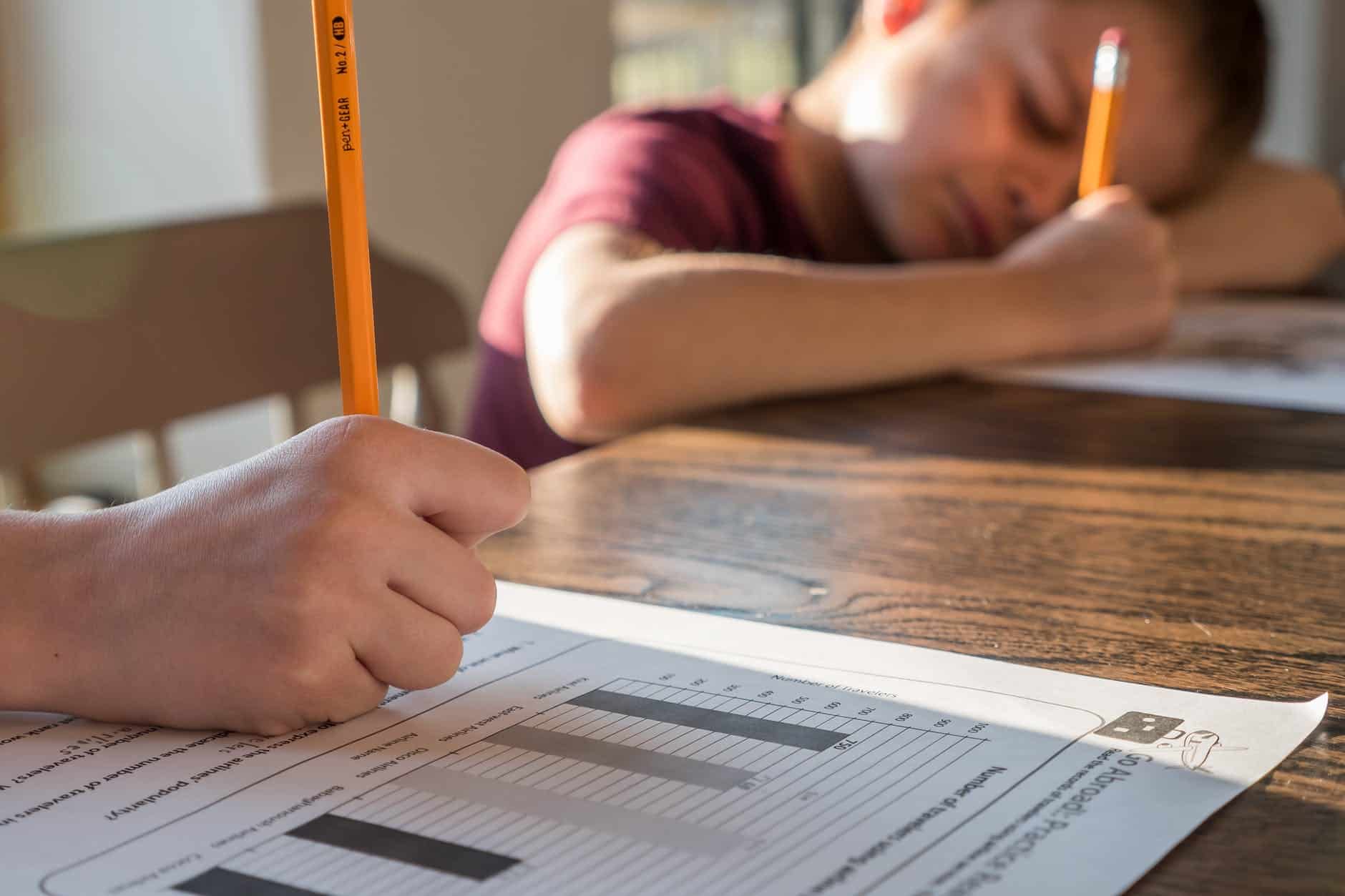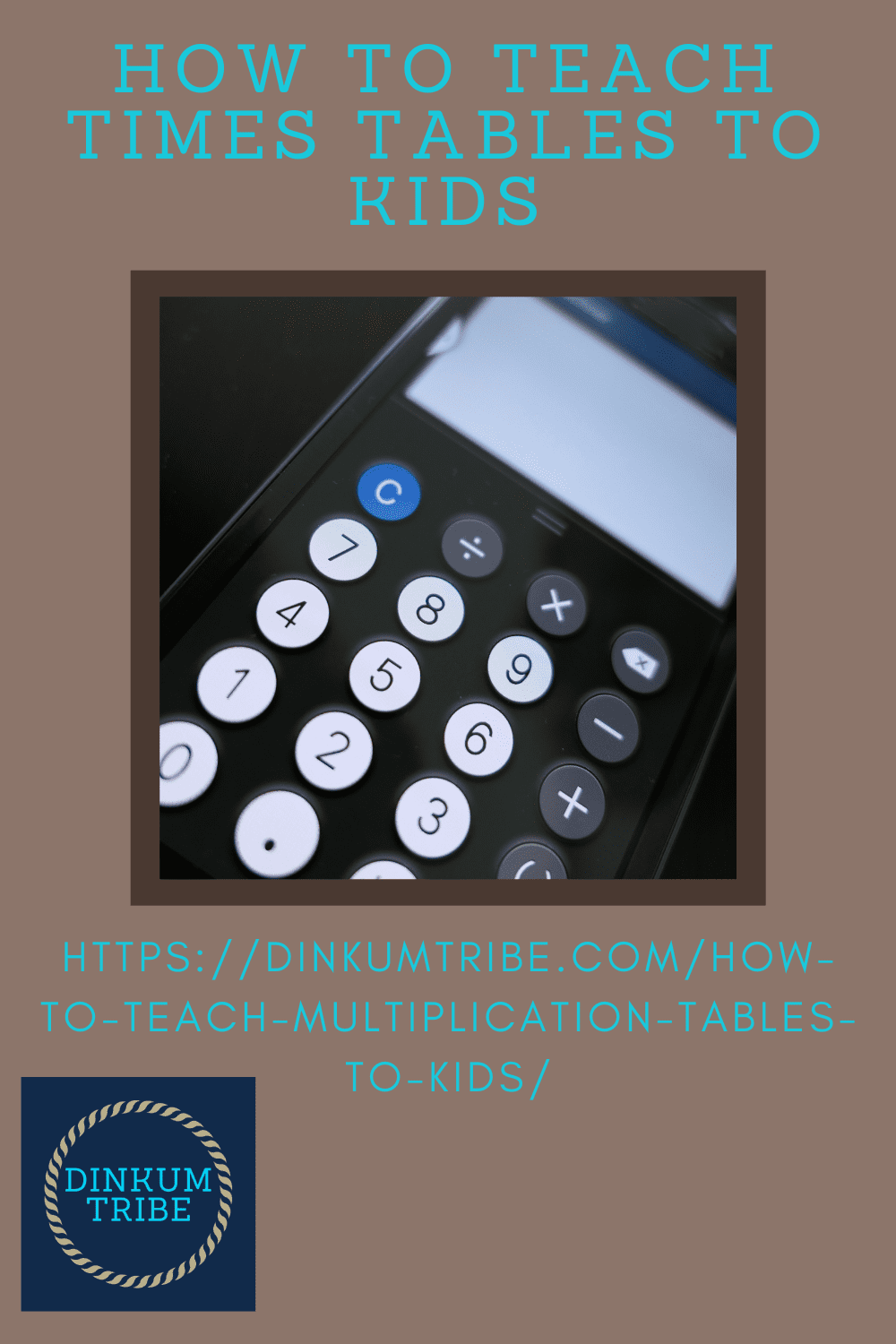Should children still memorize their multiplication tables?
That’s a valid question! As a favorite meme of mine points out, we have arrived at the time in history when nearly everyone carries a calculator around with them in their pocket. Do we even need to memorize the times tables?
This post contains affiliate links. As an Amazon Associate I earn from qualifying purchases made from the links on this site, at no extra cost to you. Thanks for supporting our family business!
Table of Contents

I gave this some real thought when my first child hit 3rd grade, the age when I learned my times tables in public school. As a first time homeschool mom, I did a lot of rethinking and re-evaluating the things I was required to learn as a public school kid.
There was a lot of educational information that I was required to memorize, but then never used again. Have I ever again needed to know the chemical formula for sucrose? And when was the last time I needed to identify the subjunctive tense in English?
On the other hand, there were many things that I had memorized simply because I had to use them so often. Repeated use and relevance is what made most of my Spanish language reading skills stick around.
When I began cooking regularly, it didn’t take long for me to memorize the fact that a cup is eight ounces or three teaspoons make a tablespoon.
When you use information all the time, it’s much easier to memorize and retain the information.

To Memorize, or Not to Memorize?
So to return to the question of whether it’s worth it to memorize the times tables, I waited awhile before deciding whether to require it. I allowed my oldest to move forward in Math without specifically requiring her to memorize the multiplication tables.
I thought that if she constantly used them, she would eventually memorize them without giving it much effort. This proved false. My daughter ended up taking much longer to complete lessons because she spent so much time trying to look up or recall from memory basic multiplication facts.

The other thing I remembered from my own school experience was that if your child ever needs to take any math above the high school level, having the multiplication tables memorized is a necessity. Yes, you can use a calculator, but it takes a lot longer to type in the question than it does to recall the correct answer from memory!

I determined that it was time for my daughter to conquer the challenge. As a busy homeschool mom with several children who need my attention throughout the day, I am always on the lookout for ways to make something easier. Here’s what works for our family.
The easy way to teach the multiplication tables
Provide motivation
We start the process by allowing my child to take a week or two off of their standard math lessons. They can totally focus on memorizing the times tables.
We get them a big Pound Plus Chocolate Bar from Trader Joe’s and tell them that it will be theirs as soon as they can write down all the times tables correctly from memory. I don’t worry about timing the test, because I know that as they continue to practice, speed will naturally pick up.

Use several learning modalities
We have had the best success with having our children watch the Schoolhouse Rock Multiplication Rock videos*. The combination of music and the video presentation helps to cement the facts in their mind.
They watch through the videos a couple of times each day, with special emphasis on the ones that are harder to remember. (*NOTE: Disney owns Schoolhouse Rock, and they are currently available on Disney+ as part of the subscription – a worthwhile short-term investment, in my opinion!)
@dinkumtribe We aren’t a flash cards family. So rather than spending hours teaching my kids the times tables, I give them the resources (SchoolHouse Rock videos, charts, etc) and offer an incentive when they are memorized. It’s worked well for my oldest 4 kids.@dinkumtribe @dinkumtribe @dinkumtribe #homeschoolmom #homeschoolhacks #mathhacks #multiplicationtricks #timestables #homeschoolfamily #homeschoolkids #adhdhomeschool #adhdhomeschooling #adhdhomeschooler ♬ original sound – DinkumTribe ADHD family travel
Then when they think they are ready, I let them fill out a times table chart. Tip: tons of time table charts are available online for free – just Google “free printable times tables”.
If my child gets all their facts right, I hand them the chocolate bar and take a picture of them with it. Yay! Time to celebrate!
If there’s a few wrong, I let them watch the videos for a few more days. Then we retake the test.

Some of my kids have found it helpful to supplement the videos by practicing with a sibling using flashcards. Others have written them out by hand multiple times.
I know some other homeschool families who have found that Times Tales worked really well for their children, though I don’t have personal experience with those videos myself.
Whatever works!

The important thing for me was that my kids could learn them effectively and with little direction or help from me. If a kid wants to say the facts out loud while bouncing on a trampoline, I let them.
I have three kids with ADHD, and they have often taken creative approaches to learning. Everyone learns differently, so I give them the freedom and motivation to do it and then cheer them on.
This year it’s time for my oldest son to learn his multiplication tables. Looks like I need to get over to Trader Joe’s for some chocolate!
How do you help your kids learn their times tables? Share what worked for you in the comments so that others can learn too!
© Copyright 2021 Jennifer D. Warren




Love Schoolhouse Rock! The musicality definitely makes learning fun.
Music is super helpful in teaching most things.
I think memorization is still important. I don’t like relying on technology for ANYTHING, and you never know when you’ll need to multiply! 😊 We do it a lot at the store while grocery shopping and searching for deals.
Agreed. It’s definitely faster in the long run.
I guess it shouldn’t surprise me that kids aren’t required to memorize the times tables anymore. It’s just a sign of the times. I know I personally use it often and prefer to not have to use my phone every time.
That was my eventual conclusion as well – I included the discussion for others who might be wondering. It’s kind of like the cursive question. Learning cursive might not be technically NECESSARY, but is is certainly useful and builds skills that are used in other areas. Thanks for your comment!
HI Jenn
Multiplication is a tricky concept for students of this age. One creative way to teach them is using multiplication games: a great form of game-based learning that helps kids understand and practice their multiplication tables.
John
Absolutely! Games work great for many challenging concepts, and we have used them from time to time. As a parent of multiple kids, I needed some things that required less direct parent involvement, so that’s why I recommend most of these options. For parents who love games, or have time to engage their kids in games to learn math regularly, I say, have at it! 🙂